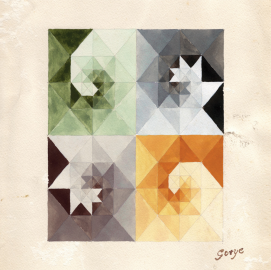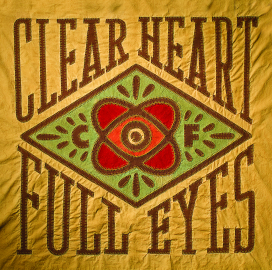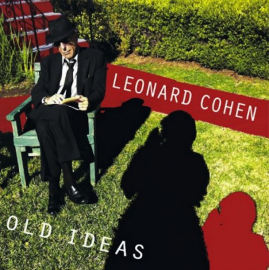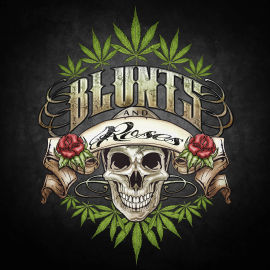
Gotye
Making Mirrors
Australian multi-instrumentalist Gotye (Wally DeBacker) has stitched together a stirring mosaic of R&B, blue-eyed soul, dance, and psychedelic rock that is well-versed in pop music history without losing sight of the intricate, oddball sensibility that sets him apart. The title Making Mirrorshints at the introspective process of creating art, but the album is marked by a degree of verve and high drama that makes the listener want to dance away the depression. Gotye draws most heavily on ‘80s pop stars like Hall & Oates, George Michael and The Police for inspiration and some of his samples, peeling back the dated arrangements and production techniques (there is nary a sax solo) to reveal a vibrant well of untapped ideas that is often unfairly dismissed. Though the album is full of pleasant surprises and detours, “Easy Way Out” probably best encapsulates Gotye’s overriding aesthetic sensibility, with its electronic flourishes, hushed choir backing vocals, thrumming bass line and fuzzed-out guitar riff anchoring a falsetto-led Big Chorus. Clocking in at 1:58, the track demonstrates Gotye’s newfound dedication to crafting artistically-challenging tracks with broad appeal. It’s enough to restore your faith in radio-friendly pop.
Craig Finn
Clear Heart Full Eyes
Solo albums provide an opportunity for the artist to distinguish their sound from their main outlet, and by doing so, validate their decision to release a record without their band. The Hold Steady frontman Craig Finn’s long anticipated solo record Clear Heart Full Eyes strips away the loud guitar riffs and inflated romanticism, opting for laid-back melodic arrangements. This mostly atmospheric music provided by his backing band allows for Finn’s rousing vocals to shine through, letting the listeners focus closely on his back-alley storytelling, which has always been central to any Craig Finn record. In a recent interview with Vulture, Finn states that his lyrics are, “If not more personal, they’re certainly more human. They aren’t as high and low, they aren’t cinematic.” The softened edges of Clear Heart Full Eyes allow time for Finn to explore more specific details about his forlorn and displaced characters. Although some of his lyrics fail to satisfy from time to time, the key moments when Finn’s gritty lyrics hit their mark give the listener the sense that these songs also belong to them.
Leonard Cohen
Old Ideas
Leonard Cohen’s unmistakable voice most definitely doesn’t die with age. In his new album Old Ideas, Cohen’s distinctive voice carries his heart-felt narratives in the most soothing way possible. His inner poet is manifest through the entirety of the album as he confesses his vulnerability in honest lyrics that speak to the heart. Cohen’s genuine character is undoubtedly communicated in this album. Although not everyone is a Cohen fan, his artistry is undeniable. If you are, however, a Cohen fan, Old Ideas will not let you down. The beautiful “Show Me the Place” sticks out as a favourite alongside the gentle melody of “Lullaby.” Listening to Cohen proves to be an experience in itself. I cannot think of any other musician whose musical approach comes anywhere near to that of Cohen’s. Sounding as if it could be American-south porch and whiskey music, Cohen is, in fact, a proud Canadian. If Leonard Cohen can be producing this kind of excellence at the age of 77, something tells me that his talents are not about to die anytime soon.
Blunts and Roses
Blunts and Roses
This album starts with the opening strains of the Beatles’ “I Am the Walrus” and somebody repeating the phrase “BLUNTS AND RO-SEEEEEES” about a thousand times in a fake-sounding British accent. This is why I don’t generally listen to rap music. Once the initial shock wears off (just what are they doing to the Beatles? And how did they get the rights for this?), the rap itself falls into a steady rhythm that is easily followed. Some rappers try working with poly-rhythms or unstressed syllables or have no sense of flow at all, and these problems – I find – are insurmountable. With rap, as a genre, you’ve given up melody (for the most part) in favour of flow. If you don’t have flow, it’s not actually music. Thankfully, Blunts and Roses has a pretty okay grasp on how to keep a beat going, and while I have to admit their lyrics didn’t stand out to me (I phased out after hearing the token “brother,” “neighbourhood,” “drugs” and “guns” mentioned) I feel it’s something that could be put on at a party and left running. The album as a whole, in fact, keeps from blurring into one long rappy whole by the clever (and possibly litigation-prompting) use of classic rock songs as background melody. As I said, once the listener gets over the initial shock of hearing “I Am the Walrus” or “You Can’t Always Get What You Want” in such a strange new scenario, it’s actually kind of cool.





